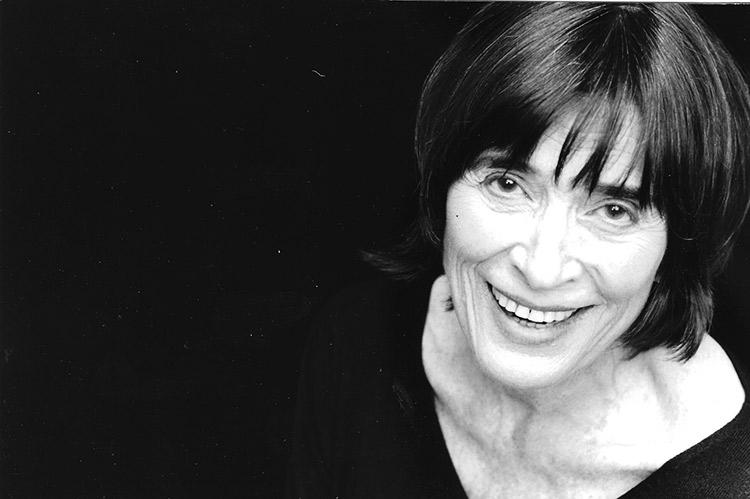Phyllis Raphael of Amagansett and New York City, a writer, died on March 28 at her apartment on the Upper West Side. She was 87 and had been living with multiple myeloma for several years.
Her fierce, observant essays and stories were described as “desperate urban comedy” by the literary critic Seymour Krim, and considered mainstay reading during the golden age of The Village Voice, the publication that chronicled New York City during some of its most tumultuous years the 1970s.
Ms. Raphael was published in The East Hampton Star, The New York Times, The International Herald Tribune, Harper’s, Vogue, and elsewhere. Her work was featured in the book, “Hampton Shorts,” a collection of work by East End writers. She was the recipient of a PEN award for short fiction and was honored with three Yaddo Fellowships.
For over 30 years Ms. Raphael was on the faculty of Columbia University, where she taught creative writing. In East Hampton, where Ms. Raphael first spent summers on Apaquogue Road with her three children, she was an early fan of the area’s first farmers market, Patricia Struk’s Amagansett Farmers Market, now home to Amber Waves.
Before the farm-to-table era, she encouraged her children to pick their own strawberries when Mrs. Struk opened her fields and berry baskets to visitors. A champion of the avant-garde, she was one of the first women to play in East Hampton’s annual Artists and Writers Softball Game.
Described by a friends as a “free spirit,” Ms. Raphael encouraged her children to be independent, instructed them to call her Phyllis, not Mom, and to take off on their own adventures on bicycle to explore the beaches and bays around Amagansett. She eventually chronicled for The Star how she built a house deep in what was once the Bell Estate with a pool where she enjoyed swimming without a suit.
Born in Brooklyn on May 22, 1935, to Samuel Raphael and the former Rose Beck, she graduated from Erasmus Hall High School and Barnard College. She was married to the film producer, Robert Chartoff, who was later to win the Best Picture Oscar for the movie “Rocky.” While living in London with their three children, the couple divorced. She stayed on with the children for several years. That experience inspired two novels: “They Got What They Wanted,” described by The New York Times as a fluent narrative that “goes at 90 miles an hour” and “Off the King’s Road: Lost and Found in London,” which Kirkus Reviews welcomed as “Savvy . . . vibrant . . . an elegant memoir of a swinging time.” The Los Angeles Times called it “laugh out loud funny.”
But it was East Hampton that was the setting for an essay published in O, the Oprah Magazine in which she describes her first date with the doctor Robert Langs, a psychoanalyst. “We played tennis on a deserted court in the middle of a field that afternoon, walked on the beach as the sun burned orange behind the dunes, threw lobsters into a big blue and white pot and ate them by candlelight.” In that essay she also confessed to locking her keys in the car. They married in 1990. Dr. Langs died in 2014.
The New York Times described “It’s Never Too Late” “as a series that tells the stories of people who decide to pursue their dreams on their own terms” and it described how Ms. Raphael had run into Stan Leff, a retired bookseller, at the grocery store Citarella and of how an unexpected love affair had swept them off their feet.
“My kids love him and that means a lot. He’s devoted to his children. I couldn’t love someone who wasn’t,” she told The Times in 2021. Her three children, Jenifer Chartoff de Spuches, William Chartoff, and Julie Chartoff of New York City survive her. She is also survived by a nephew, a niece, and a sister, Bette-Jane Raphael, all also of New York, and by nine grandchildren.
In a life filled with adventure and discovery, Ms. Raphael also experienced great sorrow. She described that in a chapter she contributed to a book by Erica Heller, daughter of the East Hampton author Joseph Heller. Titled “Last Lunch,” the book invited eminent writers to reflect on the universal longing to share just one more moment with a lost loved one and describe an imagined lunch. Ms. Raphael chose the Spanish/Chinese restaurant La Caridad, near her New York apartment, as the setting, and her grandson Max Glezos-Chartoff, who died of a brain tumor in 2012 at the age of 7. The two share chicken and yellow rice, ice cream and sprinkles.
At the chapter’s end, she wrote, “Standing in the empty hallway I have a sudden recollection of Emily Gibbs in Thornton Wilder’s play ‘Our Town,’ learning how painful it is after death to go back among the living. Just as unbearable, I think, for the living to have one last chance to be with the dead.”
Ms. Raphael’s family has asked that memorial donations be directed to the Children’s Brain Tumor Project at childrensbraintumorproject.org or by mail to Weill Cornell Brain and Spine Center, attention Roseann Henry, 525 East 68th Street, Box 99, New York, N.Y. 10065.
— Mary-Elizabeth Gifford




